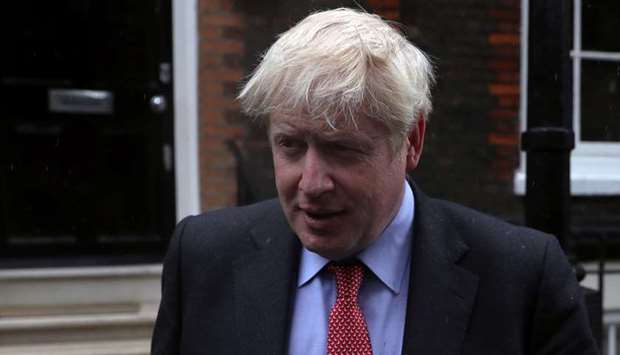Boris Johnson is expected to escape a confidence vote brought by Labour on his first full day as prime minister, with senior Conservatives saying that he should be given a “time-limited chance” until the autumn to show that he has a plan to avoid a no-deal Brexit.
Labour has been having doubts for some time about bringing a vote of no confidence in Johnson immediately before MPs go on their summer holiday, because would-be Tory rebels have indicated that they want to let the new prime minister attempt to strike a deal with Brussels first.
Johnson is the runaway favourite to be picked by Tory members as the new prime minister; the result of the contest will be announced on Tuesday.
Theresa May will formally resign to the Queen on Wednesday after her last prime minister’s questions, and Johnson is expected to enter Downing Street later that day.
There is an opportunity for his majority to be tested in the House of Commons on Thursday, but it is thought more likely that he will simply make a statement setting out his plans for proceeding with Brexit over the summer while parliament takes a break until September.
John McDonnell, the shadow chancellor, suggested in May that a confidence vote could happen as soon as a new prime minister entered No 10.
Valerie Vaz, shadow leader of the Commons, said early last month that it was “vital” for MPs to test the new leader in parliament immediately and suggested that the Commons would still be sitting in early August.
But several Labour party sources said that although holding a confidence vote on Thursday was still an option, it was unlikely because there was little chance of success and it could end up bolstering Johnson’s position.
They were also cool on the idea of tabling a confidence motion to be voted on after recess, because of fears that Johnson could make parliament stay another day to vote on it in order to stop it hanging over them for weeks.
One senior MP on Johnson’s campaign said it had no fear of an immediate confidence vote and that the attitude was “bring it on”.
Tories fighting against a no-deal Brexit, including Philip Hammond and Dominic Grieve, are considering whether they would vote to bring down a Johnson-led government if he tried to pursue no deal, even if it triggered an election that could put Jeremy Corbyn in Downing Street.
However, sources close to that rebel alliance said Johnson needed to be given until at least the autumn to show whether he had a plan to avoid no deal, and to allow the public to see what they thought of him as prime minister.
One cabinet minister said: “We will give him a chance, but it is a time-limited chance.”
Sir Roger Gale, a backbench Tory, predicted earlier this month to The House magazine that if Corbyn held off lodging a vote of no confidence until after the recess, enough Tory MPs would support it for it to pass.
The North Thanet MP refused to rule out voting against Johnson in such a motion, arguing that it would depend “entirely on the circumstances”.
In an interview with Le Monde and Süddeutsche Zeitung on Friday, Hammond suggested again that he would be prepared to vote to bring down a Johnson government.
Hammond was among four cabinet ministers who broke ranks with the government to abstain on a vote on Thursday, the result of which prevents Johnson from proroguing, or suspending, parliament in order to push through an exit from the EU without a deal.
He reportedly encouraged others to vote to ensure that parliament continues to sit through September and October.
In her resignation letter on Friday, Margot James, a business minister who voted against the government, said it was “concerning enough” that Johnson was prepared to leave the EU without a deal, but refusing to rule out proroguing parliament to push it through was a “bridge too far”.
Leaving the EU without a deal was “reckless in the extreme”, she said. “Turning our backs on our biggest trading partner would leave us dangerously dependent on the US at the worst possible time.”

Johnson: the runaway favourite to be picked by Tory members as the new prime minister.
